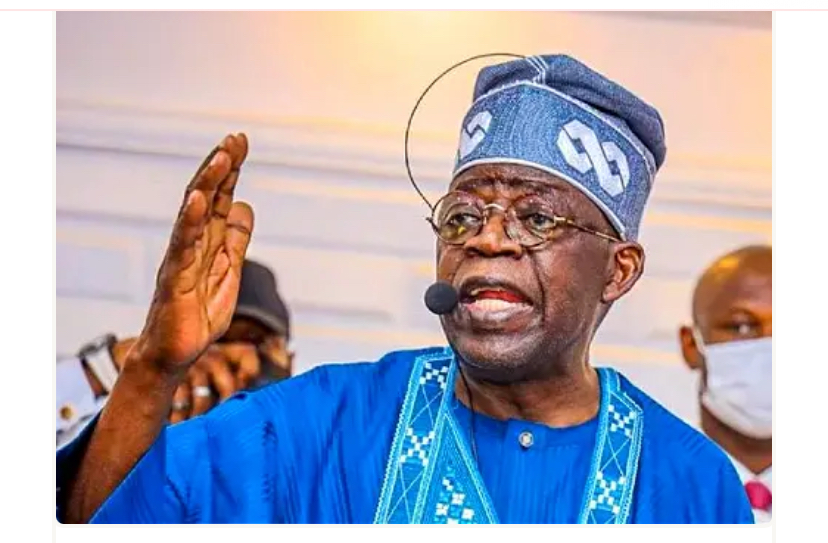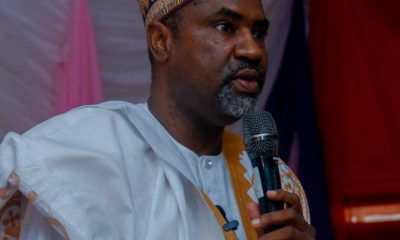brand
Sterling Bank commended for supporting Ake Arts and Books Festival

: Sterling Bank Plc has received commendation from poet and novelist Lola Shoneyin who is the founder and Director of the annual Ake Arts and Books Festival. This year’s edition featured thirty events, including book chats, panel discussions, documentary and film screenings, a poetry video album, an art show-case and a music concert. The festival curated five intergenerational conversations that reflected the 2021 festival theme: Generational Discordance.
Sterling Bank Plc has received commendation from poet and novelist Lola Shoneyin who is the founder and Director of the annual Ake Arts and Books Festival. This year’s edition featured thirty events, including book chats, panel discussions, documentary and film screenings, a poetry video album, an art show-case and a music concert. The festival curated five intergenerational conversations that reflected the 2021 festival theme: Generational Discordance.
In her closing remarks at this year’s edition of the festival, which held virtually for the second year because of the Covid-19 pandemic, Shoneyin said, “Having Sterling Bank by our side makes our heads swell. From their commitment to the belief in the transformative power of our stories and for helping us document and archive our ideas, we thank you.”
She said Ake Festival is the envy of cultural entrepreneurs and organisations across the African continent, adding that Sterling Bank has become the code word for companies that support the Arts with sincerity of purpose. “Across the continent, cultural activists often say ‘we need a Sterling Bank’,” she added.
Also speaking, Abubakar Suleiman, Managing Director and Chief Executive Officer (MD/CEO) of Sterling Bank Plc, said the bank has continued to support Africa’s biggest literary festival because education is one of the five sectors that the bank is currently concentrating investments in. The others sectors are health, agriculture, renewable energy and transportation.
The three-day festival featured ‘The Life and Times Series’ event with Booker-Prize shortlisted author, Maaza Mengiste, in a conversation with the festival headliner, Professor Abdulrazak Gurnah, who was announced as the winner of the 2021 Nobel Prize for Literature.
Gurnah, a Tanzanian author, spoke about the invasion of East Africa and noted that until recently, most conversations about colonial presence in Africa had always excluded Germany. The Nobel Laureate, however, used his novel as a medium to narrate how Germany established colonies in present-day Namibia, Cameroon, Togo, parts of Tanzania and Kenya as well as Rwanda and Burundi.
According to him, German colonial rule was as brutal as colonial enterprises were in an era known for its oppression and violence. The author, in Afterlives noted that it was Germany that perpetrated the first genocide of the 20th Century in 1904 and 1908 respectively. The genocide was part of a campaign of ethnic extermination and collective punishment waged by the German Empire against the Herero, the Name and the San in German South West Africa (now Namibia).
Commenting on this year’s theme; Generational Discordance, Shoneyin said the internet has amplified generational differences in almost every area of African life. “From relationships, love and marriage; spirituality and religion; gender and feminism to politics and activism, the differences in perspective are glaring. Where earlier generations of Africans are anchored to their cultural identities, our younger compatriots see themselves as a part of a globalised world. It is easy to assume that our aspirations are poles apart but they are not. Africa cannot afford the luxury of endless culture wars,” she said.
“Engagement and communication – characterised by a willingness to listen – as well as mutual respect and empathy are what will face down the retrogressive forces and the structures and systems that oppress and dehumanize us. We must eschew the sensationalism and divisive influence of digital algorithms and find a more harmonious continental rhythm that allows us to talk to, and not past, each other,” she remarked.
Some of the book discussions included Bring Back Our Girls by Drew Hinshaw and Joe Parkinson; Lionheart Girl by Yaba Badoe; His Only Wife, by Peace Medie; Formation: The Making of Nigeria from Jihad to Amalgamation by Fola Fagbule and Feyi Fawehinmi; Prince of Monkeys by Nnamdi Ehirim; An Ordinary Wonder by Buki Papillon; Butter Honey Pig Bread by Francesca Ekwuyasi; Born in Blackness by NYT columnist Howard French; When the Sky is Ready The Stars Will Appearby EC Osondu; The Sex Lives of African Women by Nana Dorkoa Sekyiamah and The Teller of Secrets by Bisi Adjapon.
Alongside the intergenerational conversations, panel discussions also focused on African crime-writing, conspiracy theories and healthcare; disability rights and repatriating Africa’s stolen treasures, with discussions moderated by Harper Collins’ (UK) Nancy Adimora, which explored Of This Our Country; a new collection of essays and reflections by 24 Nigerian writers.
Virtual visitors enjoyed interviews with Denrele Sonariwo of Rele Gallery and Ade Bantu, Founder of Afropolitan Vibes.
brand
GTCO SUSTAINS PROFITABILITY MOMENTUM WITH GROWTH IN CORE INCOME – DECLARES A PBT OF N300.4BILLION IN Q1 2025

 Guaranty Trust Holding Company Plc (“GTCO” or the “Group”) has released its Unaudited Consolidated and Separate Financial Statements for the period ended March 31, 2025, to the Nigerian Exchange Group (NGX) and London Stock Exchange (LSE). The Group reported profit before tax of 300.4billion on the back of strong performance posted on the core₦ earnings lines of interest income which grew y-o-y by 41.1% and fee income up by 41.2%. The strong performance enabled the group to douse the impact of the 331.6₦ billion fair value gains recognised in Q1-2024 which did not recur in Q1-2025. The Group’s loan book (net) increased by 15.6% from 2.79trillion recorded as at December 2024 to₦ 3.22trillion in March 2025, while deposit liabilities grew by 7.7% from 10.40trillion to 11.20trillion during₦ ₦ ₦ the same period. The Group recorded growths across all its asset lines and continues to maintain a robust, well-structured, highly de-risked, and well-diversified balance sheet in all the jurisdictions wherein it operates. Total assets and shareholders’ funds closed at 15.9trillion and 3.0trillion, respectively. Full₦ ₦ Impact Capital Adequacy Ratio (CAR) remained very robust and strong, closing at 34.6%, equally asset quality improved as evidenced by IFRS 9 Stage 3 Loans which closed at 3.3% at Bank Level and 4.5% % at Group in Q1-2025 (Bank -3.5% (Group- 5.2% in December 2024) and Cost of Risk (COR) closed at 0.4% from 4.9% in December 2024. Commenting on the results, the Group Chief Executive Officer of Guaranty Trust Holding Company Plc (GTCO), Mr. Segun Agbaje, said; “Our Q1 2025 performance reflects the strength of all our business verticals and our capacity to generate strong and sustainable earnings. While the fair value gains of N331.6billion reported in Q1 2024 did not recur this quarter, the Group recorded solid growth across most income lines, underpinned by a diversified revenue base and a healthy, well-structured balance sheet.”He further stated that, “We remain optimistic about the year ahead. The fundamentals of our business are strong, our customer base continues to grow, and we are executing with discipline across our strategic priorities. Importantly, at this pace, the Group is well-positioned to deliver the full year PBT of 2024 at the very minimum by the end of the 2025 FYE.”Overall, the Group continues to post one of the best metrics in the Nigerian Financial Services industry in terms of key financial ratios i.e., Pre-Tax Return on Equity (ROAE) of 42.2%, Pre-Tax Return on Assets (ROAA) of 7.8%, Full Impact Capital Adequacy Ratio (CAR) of 34.6% and Cost to Income ratio of 29.0%. Guaranty Trust Holding Company Plc (GTCO Plc) is a leading financial services group with operations across Africa and the United Kingdom. Renowned for its strong corporate governance, innovative financial solutions, and customer-centric approach, GTCO Plc provides a wide range of banking and non-banking services, including payments, funds management, and pension fund administration. The Group is committed to delivering long-term value to stakeholders while driving growth and development across It’s markets.
Guaranty Trust Holding Company Plc (“GTCO” or the “Group”) has released its Unaudited Consolidated and Separate Financial Statements for the period ended March 31, 2025, to the Nigerian Exchange Group (NGX) and London Stock Exchange (LSE). The Group reported profit before tax of 300.4billion on the back of strong performance posted on the core₦ earnings lines of interest income which grew y-o-y by 41.1% and fee income up by 41.2%. The strong performance enabled the group to douse the impact of the 331.6₦ billion fair value gains recognised in Q1-2024 which did not recur in Q1-2025. The Group’s loan book (net) increased by 15.6% from 2.79trillion recorded as at December 2024 to₦ 3.22trillion in March 2025, while deposit liabilities grew by 7.7% from 10.40trillion to 11.20trillion during₦ ₦ ₦ the same period. The Group recorded growths across all its asset lines and continues to maintain a robust, well-structured, highly de-risked, and well-diversified balance sheet in all the jurisdictions wherein it operates. Total assets and shareholders’ funds closed at 15.9trillion and 3.0trillion, respectively. Full₦ ₦ Impact Capital Adequacy Ratio (CAR) remained very robust and strong, closing at 34.6%, equally asset quality improved as evidenced by IFRS 9 Stage 3 Loans which closed at 3.3% at Bank Level and 4.5% % at Group in Q1-2025 (Bank -3.5% (Group- 5.2% in December 2024) and Cost of Risk (COR) closed at 0.4% from 4.9% in December 2024. Commenting on the results, the Group Chief Executive Officer of Guaranty Trust Holding Company Plc (GTCO), Mr. Segun Agbaje, said; “Our Q1 2025 performance reflects the strength of all our business verticals and our capacity to generate strong and sustainable earnings. While the fair value gains of N331.6billion reported in Q1 2024 did not recur this quarter, the Group recorded solid growth across most income lines, underpinned by a diversified revenue base and a healthy, well-structured balance sheet.”He further stated that, “We remain optimistic about the year ahead. The fundamentals of our business are strong, our customer base continues to grow, and we are executing with discipline across our strategic priorities. Importantly, at this pace, the Group is well-positioned to deliver the full year PBT of 2024 at the very minimum by the end of the 2025 FYE.”Overall, the Group continues to post one of the best metrics in the Nigerian Financial Services industry in terms of key financial ratios i.e., Pre-Tax Return on Equity (ROAE) of 42.2%, Pre-Tax Return on Assets (ROAA) of 7.8%, Full Impact Capital Adequacy Ratio (CAR) of 34.6% and Cost to Income ratio of 29.0%. Guaranty Trust Holding Company Plc (GTCO Plc) is a leading financial services group with operations across Africa and the United Kingdom. Renowned for its strong corporate governance, innovative financial solutions, and customer-centric approach, GTCO Plc provides a wide range of banking and non-banking services, including payments, funds management, and pension fund administration. The Group is committed to delivering long-term value to stakeholders while driving growth and development across It’s markets.
brand
GTCO Food and Drink Festival 2025: A Shared Experience of Culture, Cuisine, and Enterprise

 The stage is set for Africa’s most anticipated celebration of food, drink, and culture as Guaranty Trust Holding Company Plc (GTCO) announces the 8th edition of the GTCO Food and Drink Festival, scheduled to hold from Friday, May 2nd to Sunday, May 4th, 2025, at GTCentre, Plot 1 Water Corporation Drive, Oniru, Victoria Island, Lagos.
The stage is set for Africa’s most anticipated celebration of food, drink, and culture as Guaranty Trust Holding Company Plc (GTCO) announces the 8th edition of the GTCO Food and Drink Festival, scheduled to hold from Friday, May 2nd to Sunday, May 4th, 2025, at GTCentre, Plot 1 Water Corporation Drive, Oniru, Victoria Island, Lagos.
This year’s festival is themed “A Shared Experience”, highlighting how every meal tells a story—stories of culture, community, and tradition that unite people across generations and geographies. The 2025 edition will feature 204 free retail stalls, showcasing the rich diversity and creativity of our food culture—from traditional Nigerian dishes and regional delicacies to contemporary fusion cuisines, savory bites, refreshing beverages, and gourmet desserts. Attendees can also look forward to a series of masterclasses, where internationally renowned chefs and respected culinary experts will share practical insights, recipes, and techniques spanning a wide range of cuisines and disciplines.
In addition to the food exhibition and masterclasses, visitors will enjoy an expansive street food arena, offering a vibrant selection of popular local delicacies, and a dedicated children’s play area, ensuring a fun, safe, and memorable experience for the entire family.
Speaking on the significance of the festival, Mr. Segun Agbaje, Group Chief Executive Officer of GTCO Plc, said: “The GTCO Food and Drink Festival is a celebration of our rich cultural diversity and entrepreneurial spirit. Every meal shared is a reminder of our traditions and the universal language of food that connects us all. Beyond the festivities, the festival reflects our commitment to supporting local enterprise—creating a free business platform where food retailers can connect with consumers, share their unique offerings, and take meaningful steps toward growth and long-term sustainability.”
At the heart of the festival is GTCO’s vision of Promoting Enterprise in support of small businesses, especially indigenous foodpreneurs. It is part of the Group’s broader commitment to creating Great Experiences for customers by offering meaningful opportunities for connection, growth, and shared success.
Admission to the GTCO Food and Drink Festival is free, and everyone is welcome to join in this extraordinary celebration of food, culture, and enterprise.
For more information on the event, please visit: https://foodanddrink.gtcoplc.com
brand
ZENITH BANK PROMISES QUANTUM LEAP IN DIVIDENDS, PAYS N195.67 BILLION FOR 2024 FINANCIAL YEARS


L-R: Executive Director, Mr. Adamu Lawani; Executive Director, Mr. Akin Ogunranti; Group Managing Director/Chief Executive, Dame (Dr.) Adaora Umeoji, OON; Founder and Chairman of Zenith Bank Plc, Jim Ovia, CFR; Executive Director, Mrs. Adobi Nwapa; Executive Director, Mr. Henry Oroh; and Executive Director, Mr. Louis Odom during the 34th Annual General Meeting of Zenith Bank Plc held at The Civic Centre, Victoria Island, Lagos, yesterday.
Shareholders of Zenith Bank Plc, at the 34th Annual General Meeting (AGM) held at the Civic Centre, Victoria Island, Lagos, on Tuesday, April 29, 2025, approved the proposed final dividend payment of NGN4.00 per share, bringing the total dividend for the 2024 financial year to NGN5.00 per share, with a total value of NGN195.67 billion.The Founder and Chairman of Zenith Bank Plc, Jim Ovia, CFR, thanked the shareholders for their unflinching support and commitment, which have been responsible for the bank’s stellar performance over the years. He noted that despite challenges globally in 2024, Zenith Bank was able to leverage the opportunities within the environment of each subsidiary to record a performance that solidly attests to the bank’s resilience as a brand.The Group Managing Director/Chief Executive Officer, Dame Dr. Adaora Umeoji, OON, expressed her appreciation to the shareholders for their commitment and support, promising quantum leap in dividends going forward. According to her, “This is the first time that I am addressing the Annual General Meeting (AGM) in my capacity as the first female GMD/CEO of Zenith Bank. I would like to thank you for your confidence and support that has placed me in this position today”. She further said that “Zenith Bank is committed to, not only meeting your expectations, but exceeding them. We are focused on running a very efficient and sustainable institution that is resilient and will ensure that our institution outlives many generations to come”. Talking specifically about dividend, she emphasized that “If you look at our dividends trajectory, payments over the period have always increased and we will continue to maintain this record. We have successfully completed our recapitalization exercise, achieving 160% subscription. Therefore, we are not under any pressure to go back for the second time to raise funds. Zenith Bank has sufficient capital buffer to do business and we will continue to delight our shareholders. We are committed to growing our topline organically while adhering to our strict corporate governance culture.”Dr. Faruk Umar, President of the Association of the Rights of Nigerian Shareholders (AARNS), applauded the Group Managing Director for her efforts in ensuring the growth of the bank’s financial indices. He said, “We are very happy that the bank is paying us N5. Most importantly the GMD/CEO, Dame Dr. Adaora Umeoji, has done so well. In the past year, she won the award for the Banker of the Year which is very commendable, and all the bank’s indices have gone up; we are now experiencing trillions in profit against N676 billion the previous year, and the shareholder’s funds, the gross earnings – everything now is in trillions. I think this is very commendable. The bank has won so many awards – no bank in Nigeria has won such qualitative awards like they have. They also surpassed the capitalization threshold of CBN by 160% – this is unprecedented. We are very happy with their performance.”Speaking on the dividend payout, Alhaji Otunba Mukhtar Mukhtar, Chairman, Trusted Shareholders Association of Nigeria, said “The consistency of Zenith Bank dividend payout has never been matched in Nigeria. Since the inception of this bank, they have kept giving shareholders a consistent dividend payout, and this has made shareholders to be richer, happier, and more excited at the hardwork, performance and commitment of the bank. We are very happy. If you look at the Profit Before Tax (PBT) and the Profit After Tax (PAT), they have been able to cross the N1 trillion
threshold. They have given us a Profit Before Tax of N1.3 trillion, which is very commendable. The shareholders, as you have seen at the meeting, have expressed their happiness and joy about this performance. I am grateful to the Chairman, Dr. Jim Ovia, CFR, the Management and the Board for such an outstanding performance.”Ambassador Dr. Olatunde Okelana, the Balogun Olugbon of Orile- Igbon, Oyo State, also commented on the bank’s dividend payout. In his words, “Zenith Bank investment has been the best for me. I want to believe that whoever has not invested in Zenith Bank has lost. Their dividend policy is very palatable, very beautiful in the banking industry and the lady at the helm of affairs is performing wonderfully well. She is one of the best female CEOs in the banking Industry in Nigeria. I am a capitalist, so I invest where my money can give me beautiful returns. I want to tell you that Zenith Bank has been the best in the capital market and it is the best investment. Dr. Jim Ovia, CFR, the Founder & Chairman, is a benefit to mankind, he has done the best by giving us Zenith Bank. 99.9% of my savings is in Zenith Bank, because I have confidence in them and in the Management led by Dame Dr. Adaora. I want to encourage many Nigerians to invest in Zenith Bank so that they too can reap the fruit of their labor as soon as possible. I am very happy to be a shareholder of this bank.Chief Timothy Adesiyan, President of the Shareholders Solidarity Association of Nigeria, praised the Chairman and Management of Zenith Bank for their consistent delivery of value to shareholders. He noted, “The dividend we received this year of N5 has been a promise which they have given to us at several forums which they have called at different times, and we thank them for not failing us in their promise. I am very proud to be a shareholder of Zenith Bank, and also their customer. The bank is a very reliable bank – if you keep your investments in Zenith Bank, you can go to sleep because there is always somebody there watching your investment for you.”The bank’s robust financial performance in 2024 alluded to its commitment to continually delivering value to its investors in spite of challenging macroeconomic conditions. Zenith Bank Group achieved a remarkable double-digit growth of 86% in gross earnings, from NGN2.13 trillion in the previous year to NGN3.97 trillion in 2024. This was driven by a 138% increase in interest income, supported by investment in high-yield government securities, and growth in the Bank’s loan book. Customer Total assets rose by 47%, underpinned by a strong liquidity position and effective balance sheet management.Zenith Bank’s track record of excellent performance has continued to earn the brand numerous awards including being recognized as the Number One Bank in Nigeria by Tier-1 Capital for the fifteenth consecutive year in the 2024 Top 1000 World Banks Ranking, published by The Banker Magazine. The Bank was also awarded the Bank of the Year (Nigeria) in The Banker’s Bank of the Year Awards for 2020, 2022 and 2024; and Best Bank in Nigeria for four times in five years, from 2020 to 2022 and in 2024, in the Global Finance World’s Best Banks Awards of Zenith Bank Plc, at the 34th Annual General Meeting (AGM) held at the Civic Centre, Victoria Island, Lagos, on Tuesday, April 29, 2025, approved the proposed final dividend payment of NGN4.00 per share, bringing the total dividend for the 2024 financial year to NGN5.00 per share, with a total value of NGN195.67 billion.The Founder and Chairman of Zenith Bank Plc, Jim Ovia, CFR, thanked the shareholders for their unflinching support and commitment, which have been responsible for the bank’s stellar performance over the years. He noted that despite challenges globally in 2024, Zenith Bank was able to leverage the opportunities within the environment of each subsidiary to record a performance that solidly attests to the bank’s resilience as a brand.The Group Managing Director/Chief Executive Officer, Dame Dr. Adaora Umeoji, OON, expressed her appreciation to the shareholders for their commitment and support, promising quantum leap in dividends going forward. According to her, “This is the first time that I am addressing the Annual General Meeting (AGM) in my capacity as the first female GMD/CEO of Zenith Bank. I would like to thank you for your confidence and support that has placed me in this position today”. She further said that “Zenith Bank is committed to, not only meeting your expectations, but exceeding them. We are focused on running a very efficient and sustainable institution that is resilient and will ensure that our institution outlives many generations to come”. Talking specifically about dividend, she emphasized that “If you look at our dividends trajectory, payments over the period have always increased and we will continue to maintain this record. We have successfully completed our recapitalization exercise, achieving 160% subscription. Therefore, we are not under any pressure to go back for the second time to raise funds. Zenith Bank has sufficient capital buffer to do business and we will continue to delight our shareholders. We are committed to growing our topline organically while adhering to our strict corporate governance culture.”Dr. Faruk Umar, President of the Association of the Rights of Nigerian Shareholders (AARNS), applauded the Group Managing Director for her efforts in ensuring the growth of the bank’s financial indices. He said, “We are very happy that the bank is paying us N5. Most importantly the GMD/CEO, Dame Dr. Adaora Umeoji, has done so well. In the past year, she won the award for the Banker of the Year which is very commendable, and all the bank’s indices have gone up; we are now experiencing trillions in profit against N676 billion the previous year, and the shareholder’s funds, the gross earnings – everything now is in trillions. I think this is very commendable. The bank has won so many awards – no bank in Nigeria has won such qualitative awards like they have. They also surpassed the capitalization threshold of CBN by 160% – this is unprecedented. We are very happy with their performance.”Speaking on the dividend payout, Alhaji Otunba Mukhtar Mukhtar, Chairman, Trusted Shareholders Association of Nigeria, said “The consistency of Zenith Bank dividend payout has never been matched in Nigeria. Since the inception of this bank, they have kept giving shareholders a consistent dividend payout, and this has made shareholders to be richer, happier, and more excited at the hardwork, performance and commitment of the bank. We are very happy. If you look at the Profit Before Tax (PBT) and the Profit After Tax (PAT), they have been able to cross the N1 trillion
threshold. They have given us a Profit Before Tax of N1.3 trillion, which is very commendable. The shareholders, as you have seen at the meeting, have expressed their happiness and joy about this performance. I am grateful to the Chairman, Dr. Jim Ovia, CFR, the Management and the Board for such an outstanding performance.”Ambassador Dr. Olatunde Okelana, the Balogun Olugbon of Orile- Igbon, Oyo State, also commented on the bank’s dividend payout. In his words, “Zenith Bank investment has been the best for me. I want to believe that whoever has not invested in Zenith Bank has lost. Their dividend policy is very palatable, very beautiful in the banking industry and the lady at the helm of affairs is performing wonderfully well. She is one of the best female CEOs in the banking Industry in Nigeria. I am a capitalist, so I invest where my money can give me beautiful returns. I want to tell you that Zenith Bank has been the best in the capital market and it is the best investment. Dr. Jim Ovia, CFR, the Founder & Chairman, is a benefit to mankind, he has done the best by giving us Zenith Bank. 99.9% of my savings is in Zenith Bank, because I have confidence in them and in the Management led by Dame Dr. Adaora. I want to encourage many Nigerians to invest in Zenith Bank so that they too can reap the fruit of their labor as soon as possible. I am very happy to be a shareholder of this bank.Chief Timothy Adesiyan, President of the Shareholders Solidarity Association of Nigeria, praised the Chairman and Management of Zenith Bank for their consistent delivery of value to shareholders. He noted, “The dividend we received this year of N5 has been a promise which they have given to us at several forums which they have called at different times, and we thank them for not failing us in their promise. I am very proud to be a shareholder of Zenith Bank, and also their customer. The bank is a very reliable bank – if you keep your investments in Zenith Bank, you can go to sleep because there is always somebody there watching your investment for you.”The bank’s robust financial performance in 2024 alluded to its commitment to continually delivering value to its investors in spite of challenging macroeconomic conditions. Zenith Bank Group achieved a remarkable double-digit growth of 86% in gross earnings, from NGN2.13 trillion in the previous year to NGN3.97 trillion in 2024. This was driven by a 138% increase in interest income, supported by investment in high-yield government securities, and growth in the Bank’s loan book. Customer Total assets rose by 47%, underpinned by a strong liquidity position and effective balance sheet management.Zenith Bank’s track record of excellent performance has continued to earn the brand numerous awards including being recognized as the Number One Bank in Nigeria by Tier-1 Capital for the fifteenth consecutive year in the 2024 Top 1000 World Banks Ranking, published by The Banker Magazine. The Bank was also awarded the Bank of the Year (Nigeria) in The Banker’s Bank of the Year Awards for 2020, 2022 and 2024; and Best Bank in Nigeria for four times in five years, from 2020 to 2022 and in 2024, in the Global Finance World’s Best Banks Awards
-

 news5 years ago
news5 years agoUPDATE: #ENDSARS: CCTV footage of Lekki shootings intact – Says Sanwo – Olu
-

 news1 month ago
news1 month agoBreaking : TInubu appoints Bashir Ojulari as new CEO group of NNPC and GMD mele kyari get sacked, Says Onanuga
-

 interview1 month ago
interview1 month agoNIGERIA MECHANIZED AGRO EXTENSION SERVICE PROJECT, A STRATEGIC MOVE TO ALLEVIATE POVERTY – DR. AMINU ABDULKADIR
-

 news1 year ago
news1 year agoEnvironmental Pollutions : OGONI COMMUNITY CRIES OUT, THREATENS TO SHUT DOWN FIRSTBANK,SHELL OIL COMPANY OPERATIONS FOR NOT PAYING COURT AWARD
-

 news1 month ago
news1 month agoUpdate : Fubara ordered bombing of Rivers Assembly, I am not under duress I resigned, Says ex-Rivers HoS Nwaeke
-

 news3 weeks ago
news3 weeks agoNothing new in FBI report on Tinubu, says Onanuga
-

 news3 weeks ago
news3 weeks agoAirlin Advocacy Commissions Jos Office, Targets 7m Members By Next Elections,Says Mohammed Gamawa
-

 news4 weeks ago
news4 weeks agoUpdate : FG confirms continuation of crude, refined product sales in Naira initiative, Says Wale Edu


